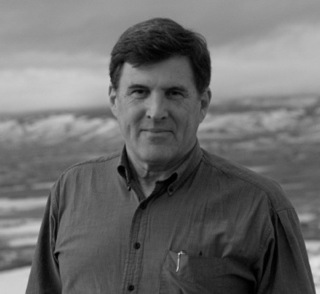On Kizer: A Letter from David Rigsbee
In recent weeks, we’ve been publishing tributes to Poetry Northwest founding editor, Carolyn Kizer. For additional features in the series, please visit here. Below, a letter from poet David Rigsbee recalling a moment with his friend and former teacher.
—
One day Carolyn called me up and said “Let’s go over to Duke. There’s an eminent scholar who is going to lecture on Mayakovsky and another poet you may know.” The eminent scholar turned out to be Harvard professor Roman Yakobson, the world-famous linguist and one of the last survivors to the Soviet Union’s “New Lef” period, which roughly coincided with the flapper era here and ended with the accession of Joseph Stalin, as it did here with the coming of the Great Depression. So we piled into the Camaro and off to Durham we went.
The hall was long, narrow, high-ceilinged and ornate, with floor-length curtains. The whole effect was chapel-like, except for the chairs, which were in a kind of faux-Empire style, with pastel cushions and oval backs, the kind of furnishing my bottom was to become familiar with in following years when I attended AWP and MLA conventions and sat through countless readings, symposia, appreciations, lectures, and plenary sessions. The aisle was right down the middle, and the room was full except for the first row. It looked like the entire professoriat of the university–a complete set of “budge doctors of the Stoic fur,” in Milton’s wild phrase, but Carolyn began to make her way regally down the aisle, paying no mind to the glowering, mostly bearded audience, with me as unlikely escort to claim, as by right, the first-row seat. If the room had been an orchestra pit, she would have picked the concert master’s chair. We sat, two by-no-means small individuals, on the front row, and professor Yakobson was duly introduced.
The subject was Vladimir Khlebnikov’s “Sound Poetry,” an experimental super-onomatopoeic genre that sought to liberate words from their signifiers. Yakobson had been an intimate of Mayakovsky and Yesenin—and presumably of the ancient Lily Brik, Mayakovsky’s lover, who lived on the upper east side of New York. So to me he was history itself, and as a new Russian and English double-major, I looked forward eagerly to his report from lost time. Professor Yakobson emerged, a tiny man in a brown suit with a shock of silken hair that stood straight up. He said some words by way of introduction to Khlebnikov’s project, and then began to recite the poet’s “cricket poem,” consisting of a series of vowel-less ticks and pops. No sooner was he underway with an impassioned rendition to the deferential, if perplexed, audience, than Carolyn pulled out a compact and brush and proceeded to groom and adjust her coiffure with lengthy strokes, followed by her pulling the remaining hairs from the bristles and dropping them on the Duke University carpet. Then she would consult the compact mirror, tilting her head and offering the glass first her face full-on, then in partial profile. The good professor darted annoyed looks at Carolyn, but she was not seeing them and he continued dutifully with his recitation. When she was satisfied with her own result, she thrust the compact and brush into her clutch and looked up, as if to see what manner of man was making these extraordinary noises in the name of poetry. Famous already for taking the measure in a glance, she sat for the rest of the lecture with a look of bemused tolerance on her face. As for me, I sat beside her with a combination of astonishment, pride, and outrage at my teacher’s behavior. I was embarrassed too, but the chutzpah itself diminished the negatives. When I mentioned this anecdote to my 20-year-old (Carolyn’s granddaughter) recently, she replied, “Perfect!”
—
 David Rigsbee is the recipient of the 2009 Black River Poetry Prize from Black Lawrence Press for The Pilot House (2011) and is winner of a 2011 Pushcart Prize for work published in The Red Tower: New and Selected Poems (NewSouth Books 2010). His new collection, School of the Americas, will be published next spring by Black Lawrence Press. He has been the recipient of fellowships and prizes from the National Endowment for the Arts, The National Endowment for the Humanities, the Virginia Commission on the Arts, The Fine Arts Work Center in Provincetown, the Djerassi Foundation, and the Academy of American Poets.
David Rigsbee is the recipient of the 2009 Black River Poetry Prize from Black Lawrence Press for The Pilot House (2011) and is winner of a 2011 Pushcart Prize for work published in The Red Tower: New and Selected Poems (NewSouth Books 2010). His new collection, School of the Americas, will be published next spring by Black Lawrence Press. He has been the recipient of fellowships and prizes from the National Endowment for the Arts, The National Endowment for the Humanities, the Virginia Commission on the Arts, The Fine Arts Work Center in Provincetown, the Djerassi Foundation, and the Academy of American Poets.
